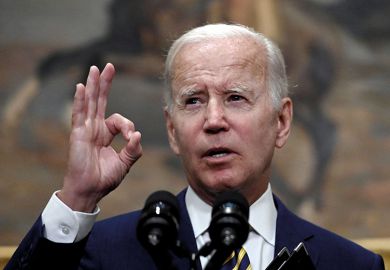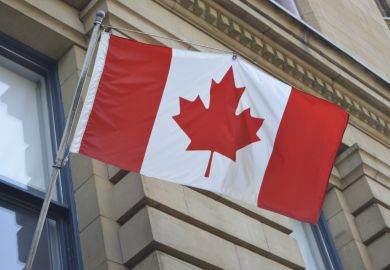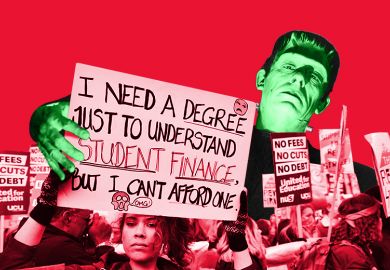The Biden administration’s student loan forgiveness initiative is stirring some interest in the idea in Canada, though with the more realistic outcome a possible improvement in borrower repayment terms.
The New Democratic Party of Canada, the nation’s progressive voice and third-biggest political party, holding about 20 per cent of popular support nationwide, called last year for cancelling up to C$20,000 (£13,000) per borrower in federal student loan debt.
Such widespread student loan forgiveness still seems unlikely in Canada, although the persisting US debate over the matter has helped draw Canadians’s attention to their nation’s own affordability challenges, said Erika Shaker, director of education policy at the Canadian Centre for Policy Alternatives.
“It brings the notion of compensating for the downloading of the costs of higher education onto students and families back into the realm of the possible,” Ms Shaker said.
Joe Biden, largely meeting a 2020 campaign promise, last month granted more than $300 billion (£260 billion) in student debt relief to more than 43 million borrowers, in amounts between $10,000 and $20,000 per person.
His move was driven in part by recognition that while an imperfect solution to the nation’s ballooning problems with college affordability, it was one major action the president appeared allowed by law to take without further action in the long-stalemated US Congress.
Canada’s parliamentary system gives prime minister Justin Trudeau a similar bottom-line power, although with markedly different calculations in a country where college affordability, while a rising concern, is far less dire.
In the US, more than 45 million student borrowers owe at least $1.6 trillion, for the nation’s second-largest form of household debt, behind only housing. In Canada, with a far more subsidised environment and about a tenth of the US population, 2 million student borrowers owe the federal government slightly more than C$20 billion. A parliamentary budget assessment during the last federal election in 2019 estimated a first-year cost of C$16 billion – 1/25th of the Biden initiative – to forgive student loan debt for graduates earning less than C$70,000 per year.
The leader of the New Democratic Party, Jagmeet Singh, in his call last year for C$20,000 per person in federal student loan forgiveness, described young Canadians as “being buried in debt”. And while the NDP is part of a coalition agreement that keeps Mr Trudeau in office, Mr Singh castigated the prime minister as being “forced to help students throughout the pandemic”.
Despite such rhetoric, Ms Shaker said, the topic of post-secondary education overall is “shockingly absent from the political debate” – both during the 2019 election and in the subsequent agreements through which the NDP has been upholding the Trudeau government.
To the degree that student loan debt has been an issue in Canada, she said, the focus has been on the repayment threshold – the amount of annual income below which graduates can delay student loan repayments to the government. Canada’s current repayment threshold is C$25,000, and the Trudeau government has talked of raising it to C$40,000 or C$50,000.
Register to continue
Why register?
- Registration is free and only takes a moment
- Once registered, you can read 3 articles a month
- Sign up for our newsletter
Subscribe
Or subscribe for unlimited access to:
- Unlimited access to news, views, insights & reviews
- Digital editions
- Digital access to THE’s university and college rankings analysis
Already registered or a current subscriber?








